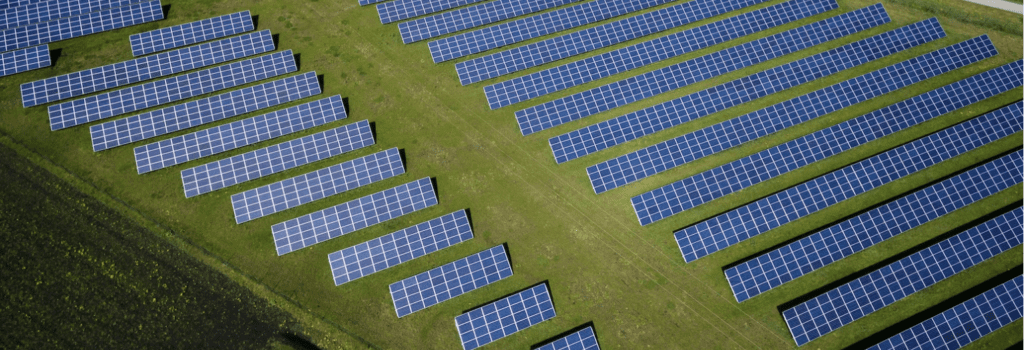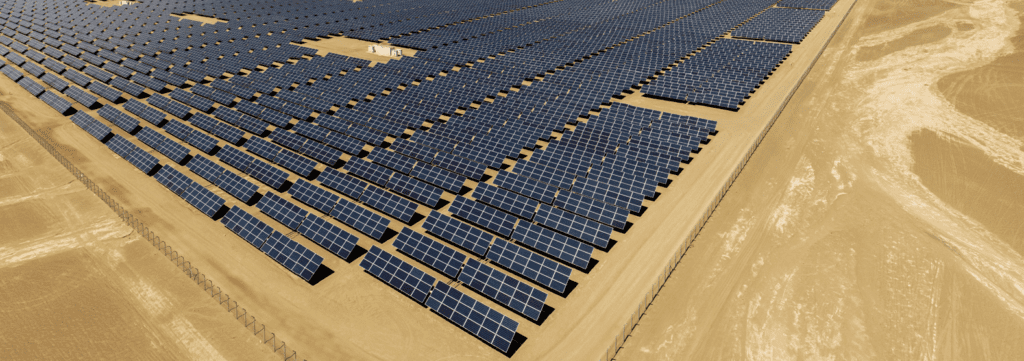Welcome to Green Europe’s Solar Energy FAQ, your comprehensive guide to understanding the world of solar power. This article provides answers to common questions about solar energy, how solar panels work, different types of solar energy systems, the benefits of solar energy, its drawbacks, major companies in the solar industry, and job opportunities it offers. Whether you’re a student, a professional, or simply curious about clean energy, this FAQ will illuminate the power of the sun and its role in shaping our sustainable future.
Index
- Introduction to Solar Energy
- How Solar Panels Work
- Different Types of Solar Energy
- Benefits of Solar Energy
- Downsides of Solar Energy
- Biggest Solar Energy Companies
- Job Opportunities in the Solar Energy Industry

Introduction to Solar Energy
What is solar energy? Solar energy is a renewable energy source derived from the sun’s radiation. It is harnessed using solar panels, which convert sunlight into electricity or heat for various applications. Solar energy is clean, abundant, and environmentally friendly.
How does solar energy work? Solar panels, also known as photovoltaic (PV) cells, capture sunlight and convert it into electricity through a process called the photovoltaic effect. When sunlight strikes the solar cells, it excites electrons, generating an electrical current. This electricity can be used directly or stored for later use.
Where is solar energy used? Solar energy is used in a wide range of applications, from residential buildings to large solar farms. It’s a versatile and sustainable source of power that can be harnessed in various ways to meet both small-scale and large-scale energy needs.
How Solar Panels Work
How do solar panels capture energy from the sun? Solar panels consist of numerous solar cells made of semiconductor materials, such as silicon. When sunlight hits these cells, it releases energy in the form of electrons. An electric field within the cells guides these electrons into an electric current, generating usable electricity.
What factors affect the efficiency of solar panels? Several factors impact solar panel efficiency, including the angle and orientation of the panels, the quality of solar cells, shading, and geographic location. Maximizing exposure to sunlight and using high-quality components can enhance efficiency.
How long do solar panels last? Solar panels typically have a lifespan of 25 to 30 years or more. Over time, their efficiency may gradually decrease, but they continue to produce electricity at reduced rates. Proper maintenance can extend their lifespan.

Different Types of Solar Energy
What are the primary types of solar energy systems? Solar energy can be utilized in various ways, including:
- Photovoltaic (PV) Systems: These systems convert sunlight directly into electricity using solar panels.
- Solar Thermal Systems: Solar thermal systems capture sunlight to heat a fluid, which is then used to generate electricity or provide heat for buildings.
- Concentrated Solar Power (CSP) Systems: CSP systems use mirrors or lenses to concentrate sunlight onto a small area, generating high-temperature heat for electricity production.
Benefits of Solar Energy
What are the environmental benefits of solar energy? Solar energy is environmentally friendly as it produces no air pollution or greenhouse gas emissions during operation. It helps reduce the carbon footprint and combat climate change.
Are there economic benefits to using solar energy? Yes, solar energy provides economic benefits through reduced electricity bills, potential income from excess energy production (net metering), and job creation in the solar industry.
Is solar energy a reliable source of power? Solar energy can be a reliable source of power when combined with energy storage solutions or integrated into the electrical grid. It is most consistent in regions with ample sunlight.
Downsides of Solar Energy
Are there any downsides to solar energy? While solar energy has many advantages, it also has some drawbacks that need to be considered:
- Intermittency: Solar energy production is variable and dependent on sunlight. Energy storage systems are often needed to provide power during cloudy days or at night.
- Initial Costs: The upfront costs of purchasing and installing solar panels can be significant, although government incentives and falling prices have made solar more affordable.
- Space Requirements: Solar panels require ample space for installation, which may not be feasible for all locations.
- Environmental Impact: The manufacturing of solar panels involves some environmental impact, and their disposal at the end of their life cycle needs to be managed responsibly.

Biggest Solar Energy Companies
Who are some of the biggest players in the solar energy industry? Several companies are leaders in the solar energy industry. Here are some of the biggest players:
- SunPower: SunPower is a leading solar panel manufacturer known for high-efficiency solar panels and integrated solar solutions.
- First Solar: First Solar is a major player in the solar industry, specializing in thin-film solar panels and large-scale solar projects.
- Iberdrola: Iberdrola is a global energy company from Spain that has been investing in renewable energy, including solar power, to transition toward cleaner energy sources.
- Canadian Solar: Canadian Solar is a global solar company involved in manufacturing, project development, and solar solutions.
- Tesla (SolarCity): Tesla is known for its solar panels and solar roof tiles, offering integrated clean energy solutions.
- Enphase Energy: Enphase Energy specializes in microinverters and energy management systems used in solar installations.
- Meyer Burger Technology: MeyerBurger is a Swiss company specializing in photovoltaic equipment and technology, playing a significant role in the solar manufacturing sector.
These companies are at the forefront of advancing solar energy technology and expanding the use of solar power around the world.

Job Opportunities in the Solar Energy Industry
What job opportunities are available in the solar energy industry? The solar energy industry offers diverse job opportunities, including:
- Solar Installers: These professionals are responsible for installing solar panels and systems on residential and commercial properties.
- Solar Engineers: Solar engineers design and optimize solar energy systems for various applications.
- Project Managers: Project managers oversee the planning and execution of solar energy projects, ensuring they are completed on time and within budget.
- Sales and Marketing: Sales and marketing professionals promote solar products and services, as well as educate consumers on the benefits of solar energy.
- Research and Development: Solar companies invest in research and development to improve solar technology and efficiency, creating opportunities for scientists and engineers.
- Environmental Specialists: These specialists assess and mitigate the environmental impact of solar installations.
- Finance and Administration: Solar companies require professionals in finance, accounting, and administration to manage budgets, contracts, and financial operations.
- Legal and Regulatory Experts: Legal professionals are essential for navigating complex regulations and contracts in the solar industry.
Job opportunities in the solar energy industry are on the rise as the demand for clean energy solutions continues to grow.



